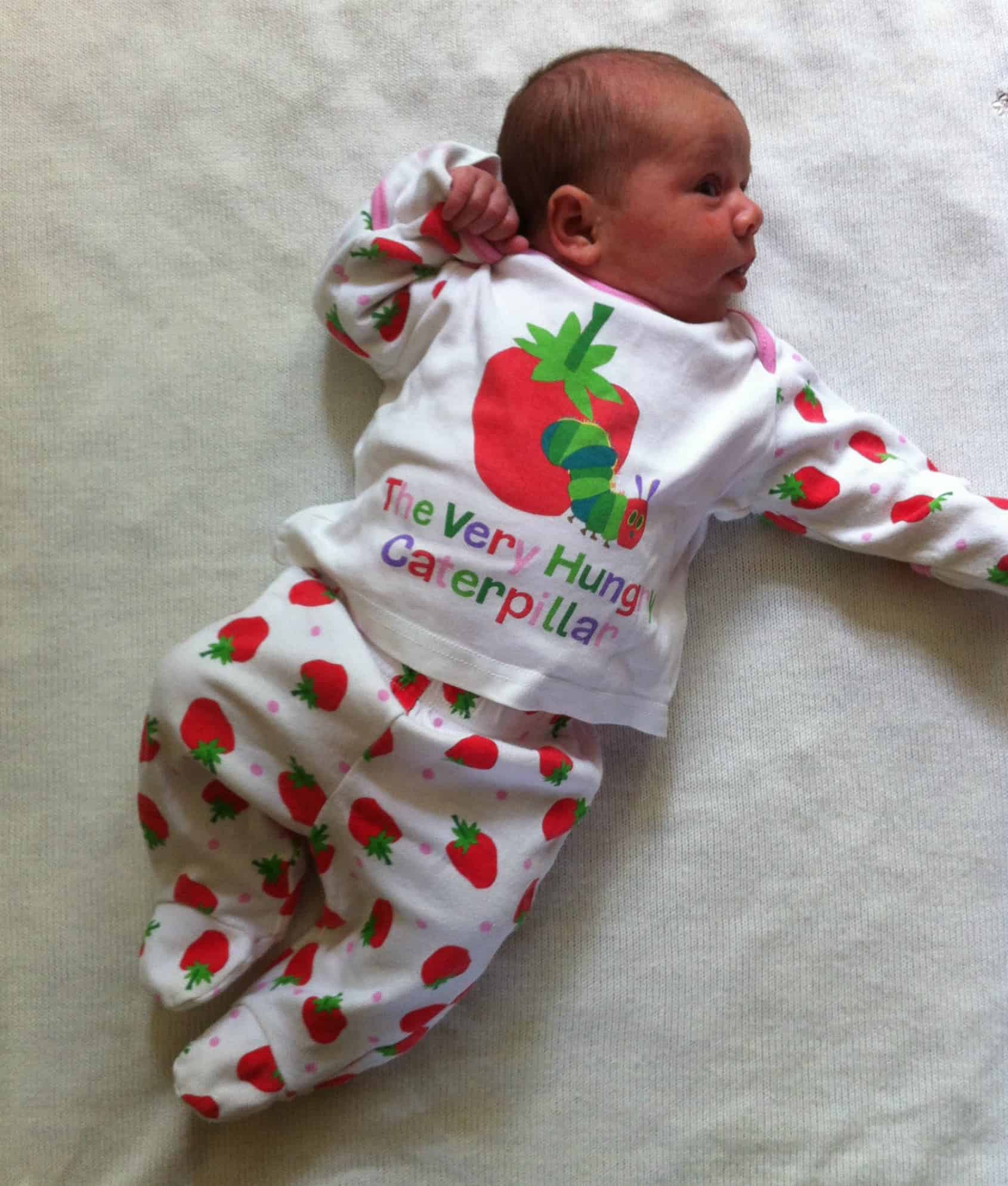Breastfeeding: Midwives Tales and Other Bad Advice
Can I firstly say I have had some great midwives, health visitors and maternity support workers across my 3 pregnancies and breastfeeding my babies. This post is not intended to disrespect any hard working professional, it is merely an observation on some experiences I have either had directly or from talking to other women. I appreciate the immensely difficult job these people do and that in the most part everyone is just trying to do the best they can with the advice, experience and knowledge they have.
That being said, midwives and health visitors sometimes give very bad breastfeeding advice. They might just grab a statement from thin air or may just not have had the most recent and up to date training on breastfeeding support. When this happens, it can cause so much damage, especially when this information is passed on from Mother to unsuspecting Mother in a chain letter type manner.
Imagine, you’ve just got home from hospital with your first baby. You want to breastfeed, but it hurts. You need some answers. The midwife turns up and the first thing she say’s is ‘It shouldn’t hurt’. You are hanging on her every word, and as she is the professional, you take her words literally. Breastfeeding then becomes very black and white, and you hold out for it not hurting at the next feed. You take this innocent statement and repeat it at every baby group you attend. Every Mother who hears you starts to experience the failure you feel when breastfeeding hurts. Suddenly the tweet has been retweeted times 10 or more times and word has spread like wildfire.
I agree that breastfeeding shouldn’t hurt, but a statement like this made without context is next to useless, and becomes even damaging to the efforts made to raise breastfeeding figures. It might hurt while you and baby are learning how to breastfeed, but it will stop when you’ve both got the hang of it (or if an underlying issue has been fixed).
Breastfeeding after 6 months rots baby teeth. I have read this on Facebook a few times as advice given by some health care professionals. There are some breastfeeding mothers who might accept this and repeat it. Others will question it, knowing instinctively it can’t possibly be right.
A HV visitor said to me when Indie was having breastfeeding issues that ‘perhaps she wasn’t gaining weight as she was flailing around so much’. I must have given her the look. I knew something wasn’t right, but that clearly wasn’t a logical or acceptable answer. A new Mum maybe tired, emotional and even struggling a little with the demands of a newborn but it doesn’t make her incapable of hearing the truth. If she doesn’t know the truth, or what is wrong how can she possibly fix it.
These midwives tales clearly fall into 2 categories. One where they are trying to soften the blow and not make you feel bad, or quite simply, very bad breastfeeding advice. Let baby cry until he really wants feeding! How stressful is that going to be for everyone, and how hungry will the little squidge be by that time I ask you, very I reckon. This clearly falls into the category of very bad advice.
Training in breastfeeding and lactation seems far from consistent which I think leads to all these inaccurate breastfeeding statements. Advisor’s are out there being asked questions that they simply aren’t equipped to answer. Faced with a desperate mother, saying ‘I don’t know, is it OK for me to come back to you’ just isn’t going to cut it, so all sorts of advice and solutions are offered instead.
This is such a dangerous position for our breastfeeding support and training to be in. We rely on our midwives and health visitors to be experts, they are in a position of trust, we expect them to know the subjects they advise on inside and out. A lot of women will take their words literally and without question, and go on to repeat them, and more women will believe them, without question. It’s a tried and tested method of how we humans pass information on, and often without testing if it’s accurate information or not.
With the pressure on to increase the breastfeeding rates to help improve some of the burden on the NHS, this needs to be fixed. More training is needed to improve the advice given so that the word that is spread about breastfeeding is an accurate one. If you are given advice, and it doesn’t sound right to you, question it, research it, and find out what is best for you and your baby. Use your instincts, you’ve got them for a reason!
Have you ever heard breastfeeding advice from a professional that was more than questionable about breastfeeding. Please share it in the comments below so that more women learn what good breastfeeding advice should look like.
Discover more from Zena's Suitcase
Subscribe to get the latest posts sent to your email.





I heard the “it shouldn’t hurt” one. I was also encouraged to use formula to help my baby sleep longer.
I have heard the it shouldn’t hurt too. I think what was worse for me was the conflicting advice I received about Breastfeeding.
I was told when I was pregnant to express colostrum before Boo was born in case I couldn’t Breastfeed (due to operations I have had in the past to removed lumps in my breasts). I was told if I could feed her to then add the expressed colostrum to expressed milk I gave her… Yet when she was a few weeks old a health visitor told me to bin all the colostrum!
The antenatal class I went to about Breastfeeding run by the NHS made Breastfeeding sound like it would be easy and I don’t feel they were totally honest, let’s face it the first 6 weeks can be very stressful, and maybe of I was told this was normal it might have made things feel less pressured?
I have found the national Breastfeeding helpline great for advice and support and I have rang them on several occasions and they gave me better advice on dealing with mastitis than the health visitor did!
I was also told it shouldn’t hurt but feeding both my babies hurt like hell despite being told my latch was perfect until 8weeks when the pain stopped overnight. I think they trot out too many umberella statements which aren’t helpful as each mum and baby are different.
I hadn’t heard the one about breastfeeding after 6 months rotting teeth before although I have definitely heard the one about breastfeeding shouldn’t hurt (although usually with the proviso ‘if baby is latched correctly’) I think there isn’t always adequate training for breastfeeding support and midwives often just don’t have the time to be able to spend with postnatal women observing feeding and offering advice and support.
I agree that training and advice is just far too patchy. We were lucky to have an excellent breastfeeding specialist midwife who we saw when Arthur was a few days old – she spotted the posterior tongue tie that several other midwives had missed. In my experience there seems to be a strong desire not to ‘put people off’ in the prenatal and just after birth stage so potential problems are glossed over – and then if issues do come up not many midwives or health visitors seem to know what to do with them. Pretty much everything useful I found out was through online forums or La Leche League’s book ‘The Womanly Art of Breastfeeding’ – a real breath of fresh air when I was struggling through those early weeks! x
I was told it shouldn’t hurt too. What a ridiculous thing to say!! I was so worried I was doing everything wrong, because let me tell you, it freaking hurt! Other than that, I think the bes advice I got was from my breastfeeding mama friends.
I was so stressed with my first – I thought I was doing everything right and then one midwife comes into my room and tells me I’m doing it wrong and my baby was ‘chomping’ instead feeding properly. I was in tears. We eventually did get the hang of it, and I successfully breastfed her for 8 months. I think we both just needed the time to get used to one another and the whole process of breastfeeding – it’s a learned skill. I think the best advice is that you feed your baby when they are hungry. Do not obsess about the time and do not wake up a sleeping baby to eat. I did follow those orders (I didn’t know any better), and it didn’t go well. Your baby instinctively knows when they are hungry and will ask for it, otherwise let them rest. With my two following babies, I knew what to do and persisted with breastfeeding without stressing about it.
I recently had a terrible experience with the nhs. Had a difficult induced labour and emergency c section under general anaethestic. Baby slept most of 1st day which I was assured was normal, latched on perfectly but fell asleep quickly each time he fed. 2nd day he wanted to feed almost all the time so midwife took him off me so I could sleep. Tried expressing but couldn’t even get a drop neither could the 5 or so nurses that came to show me how to but was assured all was fine. Went home the evening of day 2 with a baby who was feeding like a trouper or so we thought. Next morning he was weighed by the midwife – I was mortified to be told he was underweight and I should supplement with formula. I’d read this could cause supply issues but was given no info on how to increase my supply or why this had happened. Just told I had to. That night I was so paranoid that I was doing something wrong I took baby to the 24hr advice centre to get our latch checked yet again. Midwife just told me it was fine straight away but wrote on my notes that she’d ‘given help latching on’!! I didn’t notice this at the time but wish I had. Next day (4) took him to be weighed again, he’d lost more weight! When I started crying the male midwife told me ‘surely someones told you that having a c section can delay your milk coming in?’ -Well no they hadn’t but surely he should have mentioned this at the breast feeding class I attended (it was him that had run it!). Baby was admitted to children’s ward. The next 24 hours were the unhappiest of my life so far! We were told to give him 36 ml of formula every 3 hours and the doctor blatantly didn’t give a dam when I said I was worried this would affect my milk supply as I had read (in nhs literature by the way). In fact I felt like I was inconveniencing everyone by still wanting to breast feed. I insisted on cup feeding as I had read about nipple confusion and insisted I still wanted to breast feed so nurse 1 went through how to latch him on step by step – I didn’t realise at this point due to my notes they thought the problem was the latch. (Male midwife hadn’t written anything so no mention of delay in milk coming in) Baby fed then I pumped on a single pump then cup fed 35 ml formula less the tiny amount I managed to express. And so we did this every 3 hours through the night. Next shift nurse 2 said ‘I hear you’re having problems latching him on’!! I told her he latched on fine but she insisted on taking me through it again. Baby was now obviously still full from formula and didn’t want to feed and was screaming. She grabbed my hand and forced him on my nipple repeatedly until I shouted at her to stop – baby was obviously becoming as traumatised as me- she told me ‘you have to be cruel to be kind’!! I was confused – surely this wasn’t right but she was a professional with training so she must be right?! She also showed me the ‘correct’ way to hand express after telling me I was doing it wrong- next shift change nurse 3 was horrified and told me I could cause damage doing it like that. She wrote on my notes that the hospital hadn’t showed me how to hand express correctly – my partner told her it was actually her colleagues who had showed me but she didn’t change the notes. At this point we’d had so much conflicting advice from the nurses my partner was getting irate. Nurse 3 also thought it was a problem with the latch. When I insisted this hadn’t been an issue she replied ‘well you’ve had help from each nurse so far’- grrr!!!!! She then showed me notes that said ‘gave assistance with latching on’ from both nurses. Well yes this was strictly true they had given ‘help’ in that they’d gone through it again! but the problem was we didn’t need help with that it was my milk supply that needed helping!! I got really angry at this point- we’d left hospital to go home with a baby that was latching on perfectly and now had a baby that wasn’t interested on feeding from me at all. Finally they let us go home the next day but by then I was in bits convinced I had failed at breast feeding, feeling like the worst mum in the world as ‘breast is best’ had been drummed in to me throughout my pregnancy but also feeling selfish for wanting to breast feed as baby didn’t seem to want it. Luckily a friend gave me the number got La Leche League who were fantastic. I’ve been wanting to write a letter of complaint but until now I’ve not been able to think about it without getting upset. I really feel strongly that the present situation is unfair on women- berating them for not breast feeding but not giving them the support needed when there are problems.